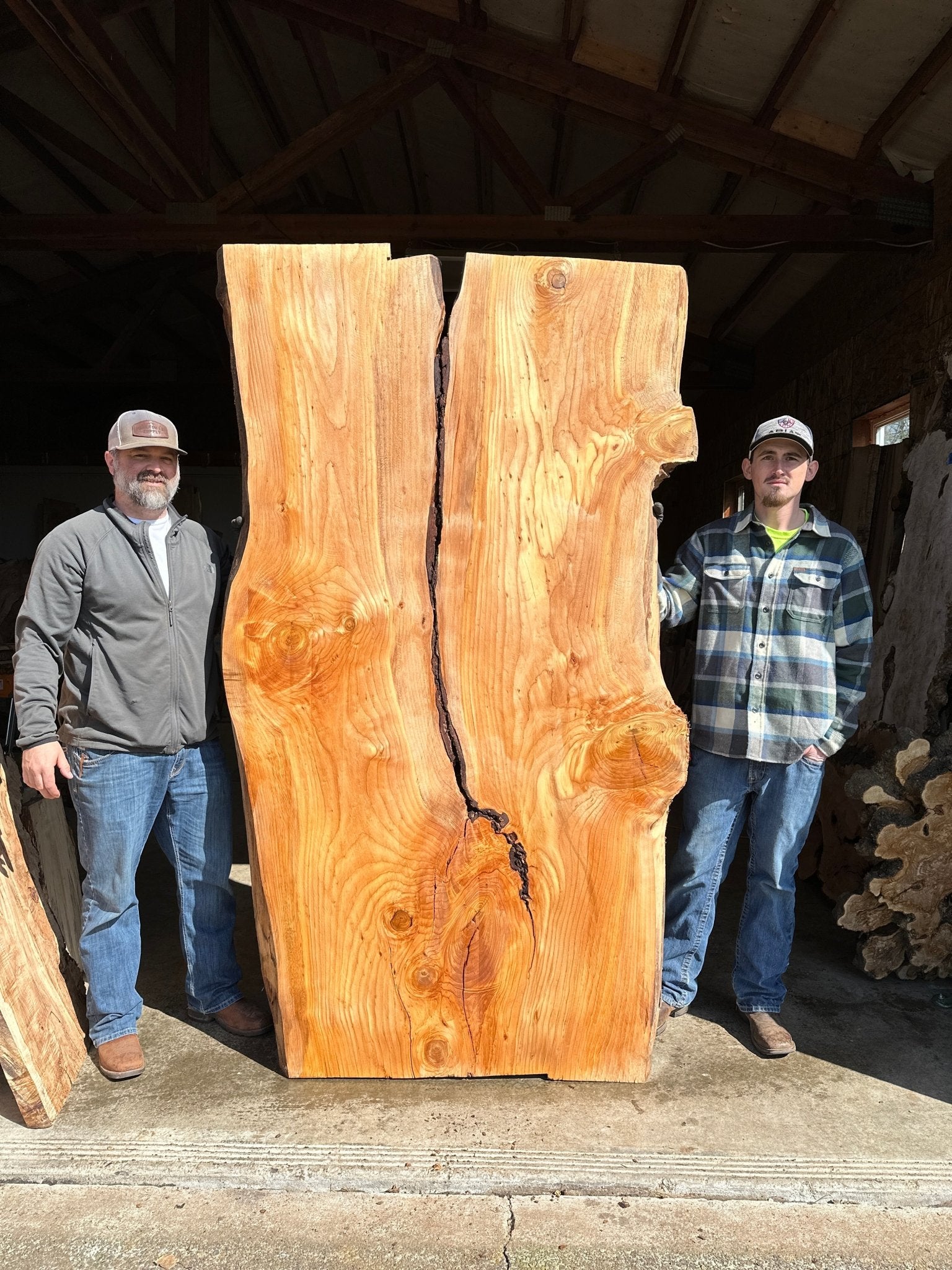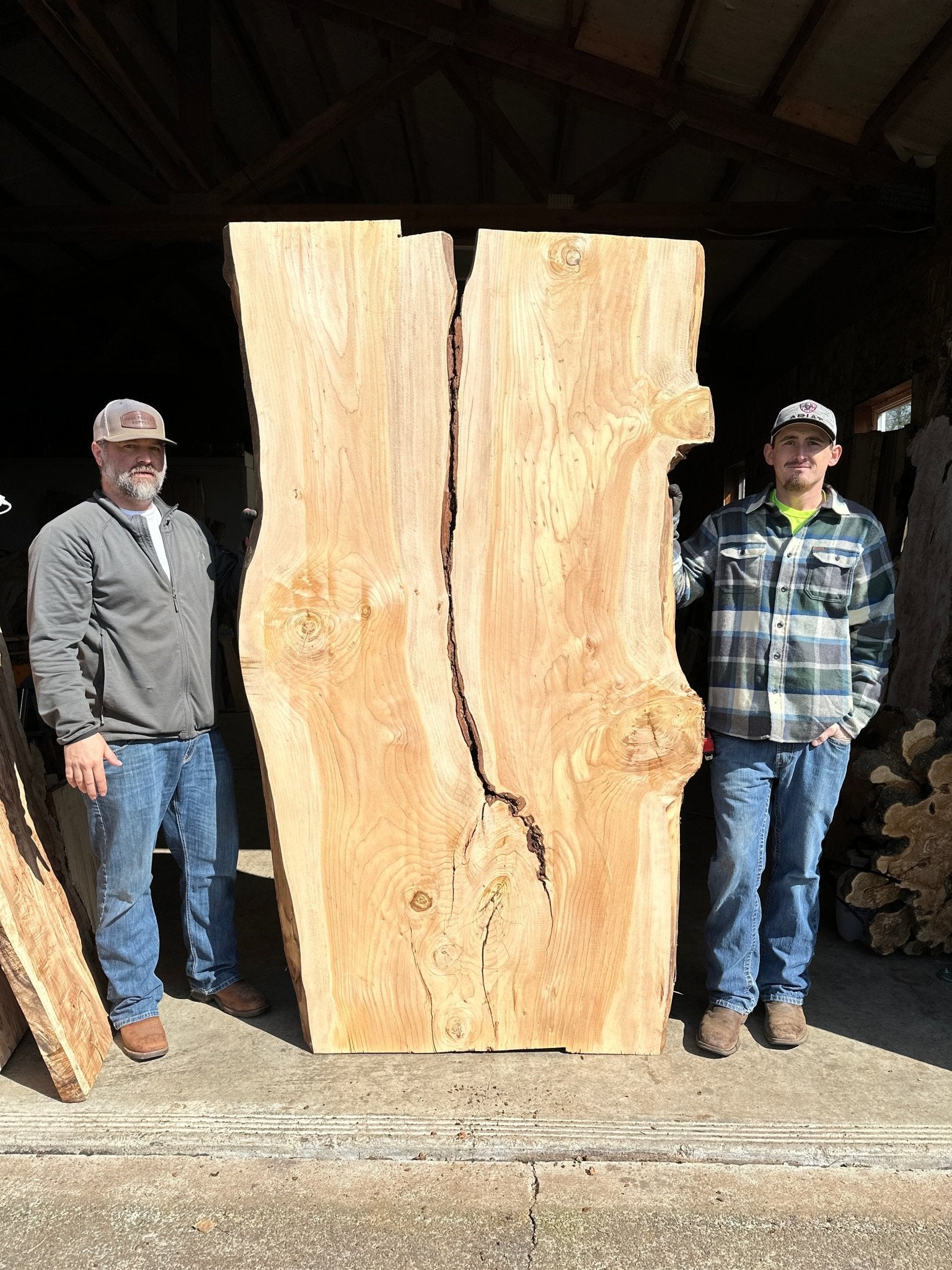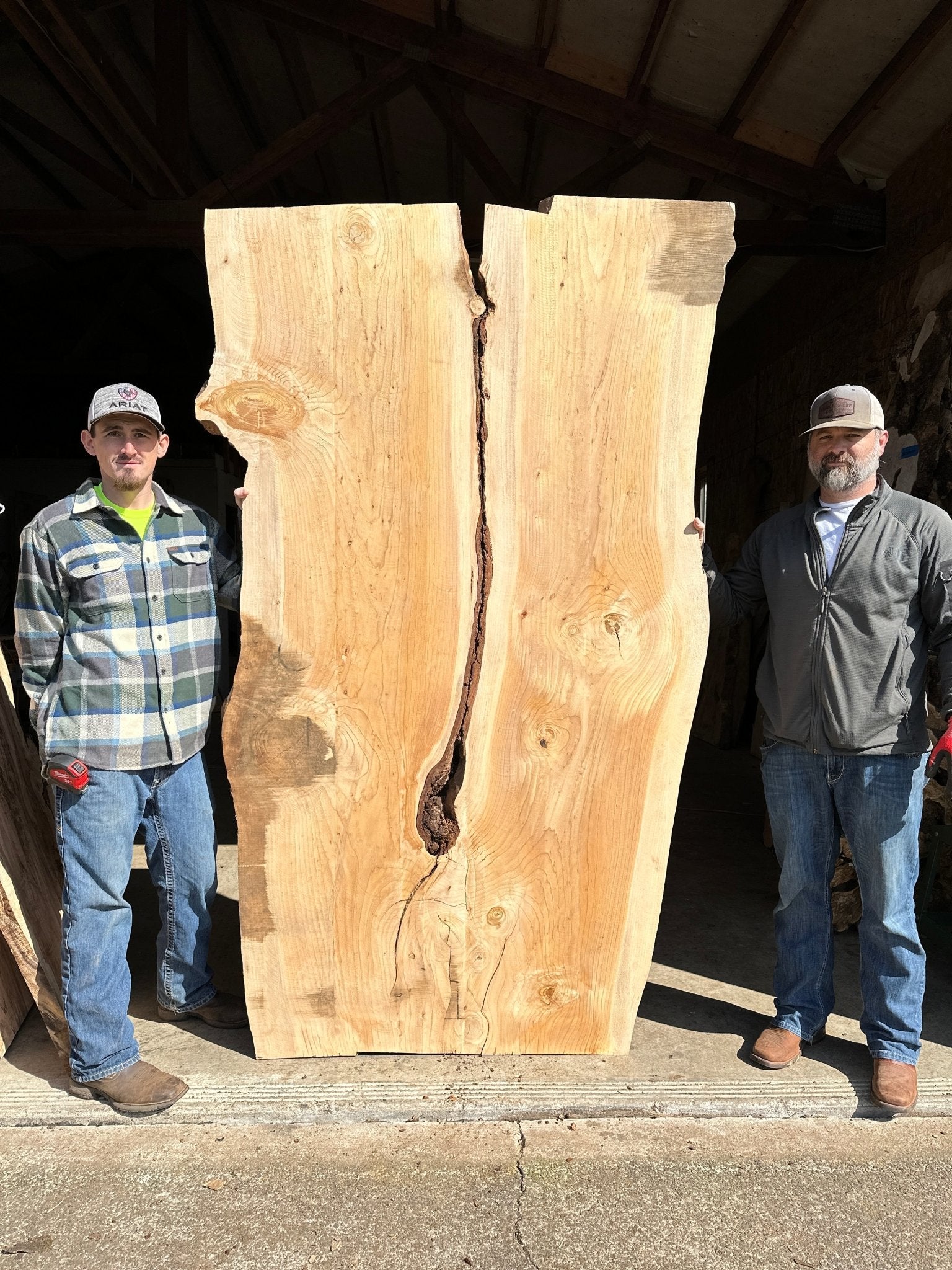LiveEdge Cedar of Lebanon
Couldn't load pickup availability
Species: Cedar of Lebanon
SKU: BGDDCL333
Length: 86"
Width (Bottom): 39.5"
Width (Middle): 45.75"
Width (Top): 47.5"
Thickness: 2.875"
Board Foot: 75.98 BDFT
Weight Estimate: 317 Pounds
Origin: Battleground, Washington
Shipping Information:
-Slab Ships From: Battle Ground, Washington
-All slabs are subject to freighted shipping. Once purchased, we will contact you via email or phone to coordinate and secure the best negotiated shipping rate for your location. Shipping costs are based on your zip code, residential/commercial address classification, and whether a liftgate/forklift is required.
If you can't find a slab that perfectly fits your needs among our listed options, feel free to reach out to us directly. We can check our inventory for additional slabs that may suit your preferences.
Contact Information:
-Email: info@hamiltonleesupply.com
-Phone: 360.601.8388
Transform your vision into reality with our remarkable Live Edge slabs. Embrace the artistry of nature in your next woodworking project and create a unique masterpiece for your home.
Crafted with precision and attention to detail, this kiln-dried slab is project-ready, ensuring minimal wood movement and cracking. Our state-of-the-art iDry vacuum kiln removes moisture, guaranteeing its suitability for your project right away.
Please note that as each tree is unique, no two slabs are alike. This individuality guarantees that your furniture piece, whether it's a table, shelf, or any other creation, will be truly one-of-a-kind.
At Hamilton Lee Supply, we are committed to preserving and reusing stunning wood materials. Our focus on sustainability means that every slab tells a story and contributes to a greener future.
Common Names: Cedar of Lebanon, Lebanese cedar
Scientific Name: Cedrus libani
Distribution: Indigenous to mountainous regions of the Mediterranean
Tree Size: Typically attains heights of 100130 feet (3040 meters) with trunk diameters ranging from 57 feet (1.52.1 meters)
Average Dried Weight: Approximately 32 pounds per cubic foot (520 kilograms per cubic meter)
Specific Gravity (Basic, 12% Moisture Content): Varies between 0.41 to 0.52
Janka Hardness: Around 820 pounds of force (3,670 Newtons)
Modulus of Rupture: Estimated at 11,890 pounds per square inch (82 MPa)
Elastic Modulus: Approximately 1,465,000 pounds per square inch (10.1 GPa)
Crushing Strength: Estimated at 6,090 pounds per square inch (42 MPa)
Shrinkage: Radial: 4.1%, Tangential: 6%, Volumetric: 10.4%, T/R Ratio: 1.5
Color/Appearance: Heartwood exhibits hues of strawcolored to light reddishbrown, featuring distinct pale yellowishwhite sapwood. Grain patterns may display irregularities due to knots or bark inclusions. The wood possesses a medium to coarse texture with moderate to low natural luster.
Rot Resistance: Classified as highly durable, displaying commendable resistance to insects and borers.
Workability: Easily manageable with both hand and machine tools, although regions with irregular grain can pose challenges during machining. Cedar of Lebanon responds favorably to turning, gluing, and finishing.
Odor: Notably emits a lingering, sweet scent.
Allergies/Toxicity: While severe reactions are uncommon, Cedar of Lebanon has been reported to induce skin and respiratory irritation, as well as symptoms resembling a runny nose and asthma. Further details can be found in the Wood Allergies and Toxicity and Wood Dust Safety articles.
Pricing/Availability: Not widely accessible in North America; smaller craft and turning blanks may originate from stormdamaged or ornamental trees. Europe offers better availability, with logs processed into larger lumber sections and veneer. Prices are anticipated to be higher compared to standard commercial softwood lumber, falling within the lowtomid range for decorative or specialty applications.
Sustainability: Not featured in the CITES Appendices but listed on the IUCN Red List due to limited total area of occupancy and a fragmented population.
Common Uses: Cedar of Lebanon finds application in veneer, cabinetry, building construction, interior lining of boxes and chests, and turned objects.
Comments: Cedar of Lebanon bears cultural and historical significance and is prominently showcased on Lebanon's national flag. It has been employed for centuries and is referenced in the Bible as a source of timber for Solomon's temple. The wood emanates a distinctive and sweet aroma.







